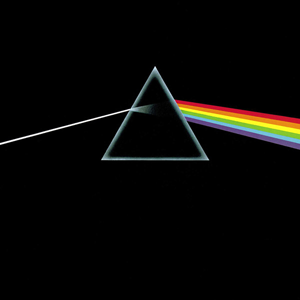The rise of digital media has completely changed the music industry. Phones have developed into our portable computers, photo gallery and music catalog. Many companies handled this by providing services for growing demands, and iTunes is one successful example. The results have been both positive and negative.
For decades, songs were delivered in groups. A single would get released on the radio, and people would like it enough to take a gamble on the album, or cassette, or CD, or 8-track. This was great for bands, and music labels, because fans who liked one song would buy ten. There was a craft to putting songs in order on an album. Obviously, concept albums that told a story had a set order, but even albums that didn’t tell a story had a flow.
 Look at Pink Floyd’s “Dark Side of the Moon.” The album opens with “Speak to Me”, a mood-setting instrumental, and side one builds up to the soaring “Great Gig in the Sky”. Side two opens with the catchy ⅞ jam “Money” and crescendos with “Eclipse”, which ties in all of the themes Roger Waters introduces over the ten contrasting tunes.
Look at Pink Floyd’s “Dark Side of the Moon.” The album opens with “Speak to Me”, a mood-setting instrumental, and side one builds up to the soaring “Great Gig in the Sky”. Side two opens with the catchy ⅞ jam “Money” and crescendos with “Eclipse”, which ties in all of the themes Roger Waters introduces over the ten contrasting tunes.
In the age of digital media, songs are released individually, usually for around a dollar each. This means that a single is introduced (on terrestrial and satellite radio, social media, YouTube, and other outlets) and fans can buy it right away on their digital media store. This is the iTunes model. The end result is that producers and artists now often don’t craft an album. Instead, they take ten shots at the next hit song. Fewer artists develop that album crafting skill. Songs, and artists, feel more disposable. The goal is to become that next big name who puts out consistent music with a sound that hardly changes. If the artist puts out an album a year with the same four-chord pop, fans are provided with a known commodity, and they spend time and time again for something they know and enjoy. The artist is safe. The fans never experience the shock of an artist moving in a new direction.
Hollywood, listen up. You are not iTunes.
 One of the alarming trends among modern filmmaking is the constant run at franchise-starting films. Studios are going for the safe, unchanging artist approach, churning out movies intent to be the next three, four or six film franchise. It’s understandable, because the model for success is there. However, for every “Harry Potter” and “Hunger Games” are a dozen attempts that fall short. They’re not all bad movies, but many sacrifice making a great movie for making an intro movie to reel in viewers. A film can be enjoyable for most of the viewing experience, and then the ending is written simply to tease the sequel instead of tell a great story.
One of the alarming trends among modern filmmaking is the constant run at franchise-starting films. Studios are going for the safe, unchanging artist approach, churning out movies intent to be the next three, four or six film franchise. It’s understandable, because the model for success is there. However, for every “Harry Potter” and “Hunger Games” are a dozen attempts that fall short. They’re not all bad movies, but many sacrifice making a great movie for making an intro movie to reel in viewers. A film can be enjoyable for most of the viewing experience, and then the ending is written simply to tease the sequel instead of tell a great story.
Some of these films stood a running chance of being enjoyable (I liked “Mortal Instruments: City of Bones”) but fall short at the end. Others try tricks that popular franchises have used, but fail to provide anything making them enjoyable on their own. “I, Frankenstein” takes all of the visual effects, half the cast, and many of the supernatural creatures that were popular in the “Underworld” franchise. Unfortunately, the story, script and characters are lackluster, and viewers get a pretty film, with no depth. Filmmakers should concentrate on making the movie entertaining on its own. A film should merit a sequel because it’s worth it, not because Hollywood wants to milk viewers for extra money over time.
Do you have a favorite film franchise? How bout a movie you wish had some sequels? Let’s hear it.
One love,
nK
